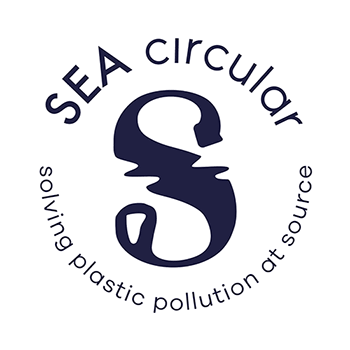
Charting a Sustainable Course: Tackling Plastic Pollution in Asia with a Human Rights-Based Approach
Post-event update
Bangkok, 05 October 2023
During the Corporate Sustainability and Environmental Rights in Asia conference, which took place on October 5th, 2023, and was jointly hosted by UNEP and UNDP, a pivotal panel discussion titled ‘Plastic Pollution in Asia: Business Models Integrating a Rights-Based Approach’ occurred at the UN Conference Centre in Bangkok, Thailand. This discussion united a diverse group of experts, industry leaders, scholars, and advocates to address the growing issue of plastic pollution in Asia-Pacific and the need to integrate human rights-based approaches within the plastic value chain.
Understanding the Crisis: The Asia-Pacific region faces the dire consequences of the plastics crisis, with an astonishing 12 million metric tons of plastic waste seeping into oceans and rivers yearly. This pollution threatens our environment and impacts human rights across the entire lifecycle of plastics, from extraction and production to transportation, use, and the management of post-consumer plastic waste.
The Role of Human Rights: Human rights, often overlooked in discussions about plastic pollution, are a critical element in addressing this crisis. A holistic approach to tackling plastic pollution involves various stakeholders, particularly businesses. A recent UNEP report outlines the potential to reduce plastic pollution by 80% by 2040 through market shifts emphasizing “reuse, recycling, and diversifying alternatives” in tandem with policy changes.
The Private Sector’s Vital Role: The private sector, especially in emerging and developing economies in Asia, has a pivotal role in combatting plastic pollution. The Extended Producer Responsibility (EPR) principle, which incentivizes producers to consider environmental factors when designing their products, has emerged as a powerful tool. As businesses transition towards circular practices, they have the potential to institutionalize a human rights-based approach (HRBA) in the plastics value chain, fostering sustainable and inclusive solutions.
Creating a Rights-Based Approach: A rights-based approach, as defined in this context, is the process of designing, promoting, and implementing actions that transition to sustainable consumption and production of plastics. This approach aims to be fair and inclusive, encompassing all stakeholders, including waste pickers and workers in the plastic value chain, to create decent livelihoods and opportunities while leaving no one behind.
In closing this crucial discussion, it is apparent that substantial progress has been made toward a more sustainable and equitable future for the Asia-Pacific region. The insights and expertise provided by our esteemed panelists have sparked a drive for positive change.
Key Outcomes
- Heightened Awareness: The event served as a platform to raise awareness about the importance of integrating human rights into the fight against plastic pollution in Asia.
- Constructive Dialogue: The panel discussions fostered productive conversations among business leaders, government representatives, and civil society about actionable measures to enhance a rights-based approach throughout the plastic lifecycle.
- Networking and Collaboration: The event facilitated networking and collaboration opportunities among stakeholders committed to tackling plastic pollution while respecting human rights.


During the panel discussion, the panelists deliberated on
- Advancing comprehension of the human-rights approach to mitigating plastic pollution in Asia.
- Fostering constructive dialogues among businesses, governments, and civil society to explore measures that both governments and the private sector can undertake to strengthen a rights-based approach throughout the entire life cycle of plastics.

Mr. Sistla highlighted the importance of the Extended Producer Responsibility (EPR) principle in driving change. He emphasized the need for companies in the Asia-Pacific region to respond to EPR effectively and discussed Unilever’s commitment to this initiative.

Mr. Arora shed light on the significance of waste pickers in the plastic value chain. He stressed the importance of recognizing their historical role and ensuring their inclusion in decision-making processes. He also discussed the adoption of EPR in the region, which should be inclusive of waste pickers.

Ms. Narayan discussed the responsibility of businesses in sourcing materials for products. She emphasized the need to ensure that human and environmental rights are respected during the sourcing process. She also touched upon opportunities for innovation in responsible sourcing.

Patricia Kameri-Mbote, Director of the Law Division at UNEP, outlined strategies to combat plastic pollution and enhance environmental well-being. These strategies encompass the adoption of Extended Producer Responsibility (EPR) schemes, increased transparency, and investments in plastic waste management. She urged businesses to incorporate the informal waste sector into EPR initiatives and endorse a human rights-based approach. The primary recommendation stressed the necessity of transitioning to a sustainable economy by promoting eco-friendly products and designs. She also highlighted the support from the UN Global Compact on Business and Human Rights for businesses committed to environmental rights.
Ms. Kameri-Mbote provided insights into the role of UNEP in setting the environmental agenda. She encouraged businesses to show ambition and leadership in upholding the right to a healthy environment. She also highlighted the support from the UN Global Compact on Business and Human Rights for businesses committed to environmental rights.
Written By: Kamal Najmus Salehin, SEA circular Communication Specialist, UNEP ROAP
About SEA circular project
The SEA circular project – Reducing marine litter by addressing the management of the plastic value chain in Southeast Asia is implemented by the UNEP Regional Office for Asia and the Pacific and the Coordinating Body on the Seas of East Asia (COBSEA), with funding support from the Government of Sweden. SEA circular aims to reduce and prevent plastic pollution and its impact by working with governments, businesses, civil society, academia, and international partners. The initiative promotes market-based solutions and enabling policies to transform plastic value-chain management, strengthens the science base for informed decision making, creates outreach and awareness. The project leverages COBSEA’s regional mechanism to tackle the transboundary challenge of marine litter in a harmonized manner.
Contact Us
Website: www.sea-circular.org
Email: sea-circular@un.org
news
